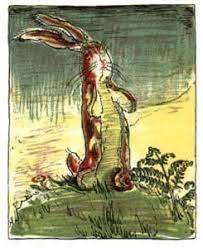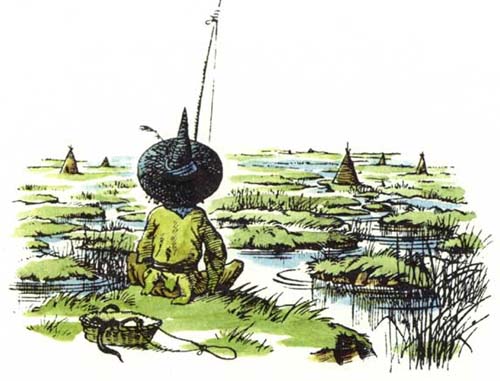At other times we have written here about the importance of the home, church, and school being in agreement, and it is a message that bears repeating. Those three entities have the most influence over a child’s formation. If the home, church, and school have different messages about who God is or who His people are or how they are called to live, a child’s mind will be divided on issues that are foundational to her existence. For a child to flourish spiritually and emotionally, hearing a consistent message from home, church, and school is necessary. By that same standard, a classical education cannot take root and flourish in the life of a child if it isn’t being supported at home.
Topics: Blog Posts, School Life, Parenting, Classical Education, Parent Involvement, Video Games, Reading, Truth, Goodness, and Beauty
There is a passage from Ray Bradbury’s Dandelion Wine that I reflect upon at the end of every Summer. It comes as the main characters, two brothers of Logic school age, are realizing that this season of their life is coming to an end:
And they left the mellow light of the dandelion wine and went upstairs to carry out the last few rituals of summer, for they felt that now the final day, the final night had come. As the day grew late they realized that for two or three nights now, porches had emptied early of their inhabitants . . . and surely when they abandoned the conflict the war with Time was really done, there was nothing for it but that humans also forsake the battleground. (p. 281)
Summer has always felt like that to me, like “a war with Time,” where every moment is grasped tighter. This is why I always tell students that Summers are Sacred. It is a kind of Sabbath, a season when we labor through rest.
Topics: Blog Posts, Parenting, Parent Involvement, Reading, Virtue
People come and people go. That is a truth in any community. It is human nature, I suppose to some extent, for people to get interested in a thing, even convinced about a thing, then lose interest or become unconvinced over time. Maybe we just have a short (and shortening) attention span. Because it is enrollment season, though, and families are deciding whether or not their children ought to attend Trinitas next year, I am spending a few weeks focusing on some of the top reasons people give for losing interest in and leaving Trinitas. This is the third of four such installments, and I hope you find it helpful if you are trying to make an enrollment decision.
#1 The standards are too high!
#2 Trinitas is weak on math!
Topics: Blog Posts, School Life, Classical Education, Alumni, True Education, College Admissions, Reading, Truth, Goodness, and Beauty, Admissions
Last week, we shared ten practical tips for achieving enduring success and experiencing the wonderful fruit of classical Christian education at Trinitas, This week, we have ten MORE practical tips we've assembled from our teachers which we hope will benefit your family.
Topics: Blog Posts, School Life, Parenting, Classical Education, Scripture, Christian Education, True Education, Parent Involvement, Reading, Homework, Truth, Goodness, and Beauty, Virtue
There is a great scene in Margery Williams’s 1922 children’s story The Velveteen Rabbit. The titular character begins questioning the old “Skin Horse” about the process of transforming from a mere toy into something more real. As the Horse explains:
“It’s a thing that happens to you. When a child loves you for a long, long time, not just to play with, but REALLY loves you, then you become Real."
“Does it hurt?” asked the Rabbit.
“Sometimes,” said the Skin Horse, for he was always truthful. “When you are Real you don’t mind being hurt.”
“Does it happen all at once, like being wound up,” he asked, “or bit by bit?”
“It doesn’t happen all at once,” said the Skin Horse. “You become. It takes a long time. That’s why it doesn’t often happen to people who break easily or have sharp edges, or who have to be carefully kept. Generally, by the time you are Real, most of your hair has been loved off and your eyes drop out and you get loose in the joints and very shabby. But these things don’t matter at all, because once you are Real you can’t be ugly, except to people who don’t understand.”
I always think of this conversation when I asked my opinion on writing in books.
Topics: Blog Posts, Studying, Reading
Have you ever tried to quote someone, but ended up having to spend more time explaining how you’re probably getting it wrong from the outset? Has a conversation ever provoked a memory for you of something you once heard, and you’re certain it is relevant to the moment, but for the life of you, the words will simply not come when called? Such gaps in memory are a normal part of the everyday experience for most of us. And in the heat of the moment, we’re often tempted to turn to the nearest search engine, sometimes a bit chastened by having to rely on such an outside source. And it is this last part that might make you wonder, “what did people do before Google?”
Topics: Blog Posts, School Life, Studying, Classical Education, Reading, Truth, Goodness, and Beauty
We should read broadly. People love diversity, and that's good--so I suggest getting books from a wide diversity of authors. Often when people say, “I read diverse authors,” they meet sometimes mean “I read multi-colored authors.” That's not what I mean. I mean that you should read ideologically diverse authors. For example, take Voddie Baucham. He requires his children to read Mein Kampf, Origin of Species, Malcolm X, Langston Hughes, The Chronicles of Narnia, The Lord of the Rings, and Greek mythology. He's not afraid to do that. He himself spends nearly as much time reading books with which he disagrees as those which affirm his positions, and he is able to identify with and profit from both.
Topics: Blog Posts, Social Issues, Reading
The topic of discussion for Parent Traditio this evening will be “Raising Readers: Cultivating a Love of Literature in the Home.” One facet of this conversation will be the importance of good literature in the forming of a child’s moral imagination. To illustrate this point, consider the scene from C.S. Lewis’s The Silver Chair (from the Chronicles of Narnia), where one of my favorite Narnian characters – a marshwiggle – bolding declares his commitment to the truth.
Topics: Blog Posts, Reading, Virtue



-1.png)






